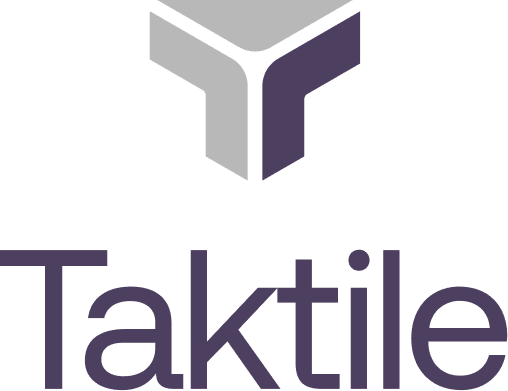Many automated decisions made by fintech businesses, such as whether or not a consumer is granted a credit line, are based on the hard-coded logic into the system underlying the app. The head of credit, for instance, must submit a ticket to IT if they want to modify the lending criteria.
In 2020, Maximilian Eber and Maik Taro Wehmeyer launched a company called Taktile, intending to facilitate user-driven updates to automated logic. While attending Harvard, the two became close friends and later worked together on the executive team of QuantCo, which develops artificial intelligence (AI)-powered applications for large businesses. They discovered that many automated judgments relied on guessing due to poor design, lack of testing, and high demand for technical resources.
To let professionals like a head of the risk create, assess, and deploy decision processes independently of engineers, Wehmeyer and his team built a platform called Taktile. "With Taktile, fintech can make data-driven changes to their risk selection and make sure they only insure the risks that fit their strategy."
Also Read: Will Programmers Become Extinct As A Result of AI?
Lead Investors of The Round
Wehmeyer refused to disclose the number of Taktile's clientele or financials, citing competitive concerns. Nonetheless, backers see room for expansion. Today, Index Ventures and Tiger Global led a $20 million Series A funding round for Taktile, increasing the total funding the business has received to $24.7 million. Interestingly, Tiger is involved since the VC company has just reduced its investment, planning to raise only $6 billion for its next fund.
Wehmeyer said that Tiger Global and Index Ventures had "preempted the round" because they had "seen strong indicators of product-market fit" and "believed that the timing was opportune to start expanding the company." As the company's CEO put it, "This round will enable us further accelerate our continuing development in the U.S., where we have witnessed fast growth, boosting our customer base by 4x since the end of last year."
Taktile provides a no-code interface to its clients, enabling nontechnical staff to construct, modify, and analyze decision-making processes. In his talk, Wehmeyer used the hypothetical situation of a bank deciding to change its lending standards by lowering the minimum age to open an account from 25 to 21. To fully understand the effects of this modification, the bank's head of credit would be able to use Taktile's historical data analysis tools.
Wehmeyer said that customers might use Taktile to conduct A/B testing to gauge the efficacy of their decision processes, which includes experimenting with pre-built data interfaces and keeping tabs on the accuracy of predictive models. He says that 280,000 choices are being made daily by the platform and that several fintech including Branch, Moss, Rhino, Novo, and Vivid Money, use it.
Wehmeyer said, "From the very beginning, our technology has been utilized by advanced financiers that deploy machine learning algorithms on our platform, which analyze hundreds of factors from various data sources to evaluate the creditworthiness of prospective borrowers."
An Introduction To Taktile
Taktile processes a lot of very confidential information. Wehmeyer claims that Taktile developed technology that lets its customer's host decision flows in their nation of choice and process data locally, satisfying the needs of numerous regulatory authorities and calming the concerns of privacy activists, consumers, and regulators.
The linked issue of algorithmic openness is likely to persist, though. As per an article in The New York Times, some lenders increasingly rely on nontraditional data sources to determine a borrower's creditworthiness, opening up access to previously inaccessible financial products while also increasing the likelihood of unintentionally reinforcing biases or making incorrect predictions.
Taktile requires its financial technology clients to disclose the nature of the data and models they store and use on the service.
Infusing judgments with machine learning & implementing data-driven optimization of decision processes are two examples of how the financial sector's decision-making requirements are changing quickly, as noted by Wehmeyer.
Wehmeyer also views Noble as a competition since it is a platform that offers a rules-based engine to change and launch credit models. His counterargument is that Y Combinator graduate Taktile has a "decent" cost structure and ample money to employ people.
Before the IT industry's recent downturn, fintechs' primary motivation was expanding their client base at whatever cost. Wehmeyer said, "intelligent risk decision-making is now a hard need since investors want a clear route towards profitability." Customers are increasingly looking to platforms like Taktile to swiftly adjust to this new, chaotic market dynamic since "building a complicated decision system takes years of labor and millions of money."
It has 45 employees spread among its New York, London, and Berlin locations, and Taktile is rapidly expanding. Wehmeyer claims that the workforce will increase to 70 members by 2023.
Featured image: Taktile
Subscribe to Whitepapers.online to learn about new updates and changes made by tech giants that affect health, marketing, business, and other fields. Also, if you like our content, please share on social media platforms like Facebook, WhatsApp, Twitter, and more.

